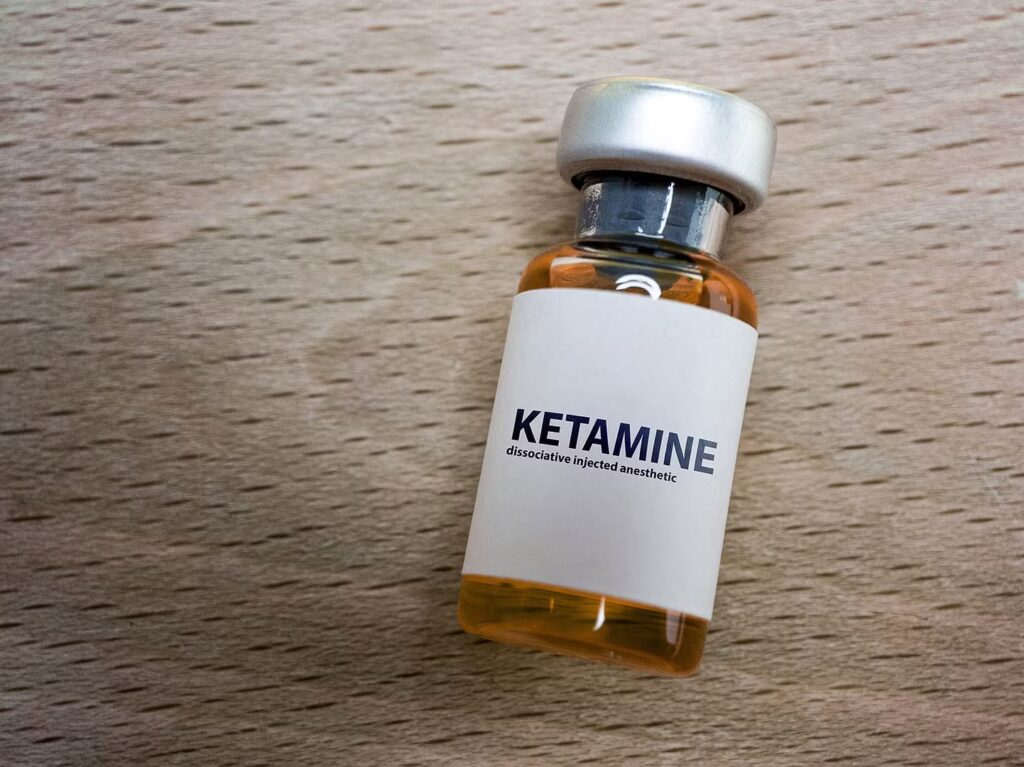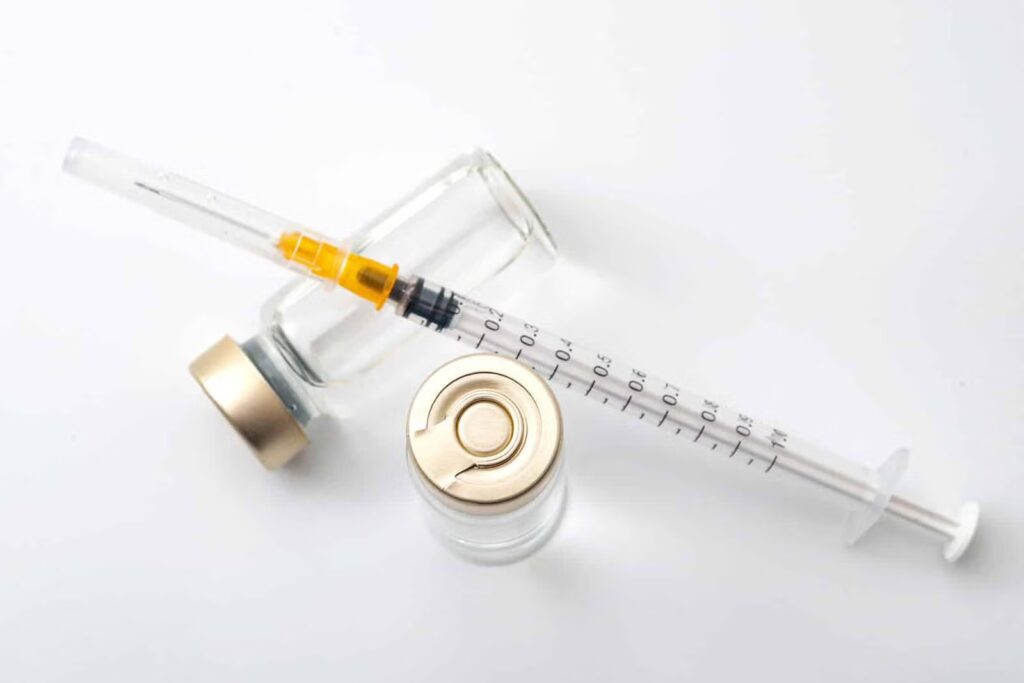Ketamine Addiction Treatment in New Hampshire
If you are suffering from ketamine addiction, treatment is available
Home > Treatment > Hallucinogens > Ketamine
Ketamine widely known as ‘ket’, ‘Vitamin K’, ‘K’ or ‘Special K’, is both a recreational drug and one that is used by doctors and veterinarians as an anesthetic. Recreationally, higher doses may produce hallucinogenic and dissociative side effects, and it can also be addictive. Your blood pressure and heart rate may increase and your reaction time may slow down, among other minor physical signs.
Fortunately, if you are suffering from the effects of ketamine addiction, various treatment options are available throughout New Hampshire.
It can be difficult and even dangerous in some cases to stop using ketamine on your own. You may need to begin with a medically-supervised detox process. After that, you can choose between an inpatient or outpatient treatment program to help you recover from addiction.
Getting over an addiction to any substance is not easy, but a rehabilitation program provides you with the tools and strategies that you need to help you overcome your addiction to ketamine.
Ketamine Addiction
The use of ketamine can be addictive because of the way that it interacts with the pleasure centers in your brain. As is the case with many substances, you may find that you need higher and higher dosages in order to get the same effects.
Abuse of ketamine can lead to a number of different physical, psychological and behavioral issues. For example, you may suffer nausea or other stomach issues, experience mood swings and begin neglecting other areas of your life, including school, work and relationships, in favor of obtaining and using ketamine.
The physical symptoms of ketamine addiction can make it particularly difficult to stop using it, and this is why for some people, the first step will be going through a detox.

Detoxification from Ketamine
The process of detoxification involves getting all of the ketamine out of your body. Although this is the first step in healing, it can feel as though you are actually making yourself sicker. When you go through a medical detoxification program, your ketamine withdrawal symptoms can be managed.
There is also a strong psychological element to ketamine addiction. You may experience anxiety, memory loss, depression and other psychological symptoms while going through the detox process.
Even once you have overcome the physical dependency through a ketamine detox program, you are likely to continue to experience cravings and a strong desire to begin using the drug again. This is where longer-term programs can help.
Inpatient Programs
For many people who are struggling with an addiction to ketamine, an inpatient program will be the best option. With an inpatient program, you get out of your regular environment and routine, where you may face more tempting triggers to lapse back into addiction. An inpatient program also allows you to focus exclusively on overcoming your drug addiction.
A good ketamine rehab program recognizes that people’s needs will vary based on a number of different factors, including how long the substance abuse has lasted, whether there is a history of other drug abuse and use, the person’s overall health conditions, their age and any mental health disorders. You can expect that the program will be designed with your needs in mind.
As an inpatient, you will have access to a number of different therapeutic approaches and professionals. For example, there may be case managers, nurses, doctors and therapists with various specialties on the staff. You might have individual as well as group therapy. Some treatment centers and addiction centers offer family therapy sessions as well.
Cognitive behavioral therapy(CBT) and dialectical behavioral therapy are both commonly used in inpatient environments to help treat ketamine misuse. The former involves learning how to change your patterns of thinking. The latter adds such tools as better communication strategies and meditation.
There might also be programs in areas such as anger management or recreational therapy.
A good inpatient program recognizes that while physical dependence is a factor, there are also underlying psychological issues that lead to ketamine addiction. In an inpatient program, you can fully focus on dealing with those issues.
An inpatient program may last for a few weeks, a few months or a year. It can offer a real opportunity to get your life on track and leave your dependency on ketamine behind.
Outpatient Programs
There are a number of reasons you might choose an outpatient program over an inpatient one. You may have obligations that do not allow you to enter an inpatient program. You might have already completed an outpatient program and need less intensive treatment, or you might have struggled with a relapse.
Many treatment facilities offer options of varying intensity when it comes to outpatient programs. Some programs may only involves one or two sessions weekly of just a couple of hours. Others might last several hours across more days of the week.
There is also an option known as a partial hospitalization program. While you do not live on the premises when you are in this type of program, the amount of time you spend in it can be equivalent to a full time job or even more. You might spend six or eight hours each day and five to seven days per week participating.
As an outpatient, you will generally have access to the same kinds of therapies and approaches that an inpatient would receive. The big difference is that even the partial hospitalization program does not offer the same degree of structure that an inpatient residential treatment program will. However, for many people, a nonresidential outpatient program will be appropriate.

Avoiding a Relapse
While living onsite at a rehabilitation facility offers the advantage of making it impossible for you to obtain ketamine through your old channels, it does mean that once you leave the program, you may be faced with the same temptations again. Outpatients will also need to resist the urge to fall back into their old habits during and after treatment.
However, whether you are an inpatient or an outpatient, you will develop a whole range of new strategies and skills for coping with your ketamine addiction. In addition, you will have a better understanding of your addiction.
Below are a few additional strategies that can help you with relapse prevention.
Avoid Drug-Using Friends
One of the most difficult elements of recovery is that it might mean you have to say goodbye to friends who are still using ketamine and who may tempt or encourage you to use it as well. However, you must prioritize your recovery and your physical well-being and mental health.
Have a Support System
Those friends who also used drugs may have felt like a support system. You might need to build a new one. This could include other people that you met under the treatment plan, a support group that you attend regularly, a counselor or a sponsor.
Use Healthy Habits as Replacement
Focusing on sleep, eating healthy foods and exercising can make you feel good in ways that ketamine never did. Remember that exercise doesn’t have to involve sweating in a gym. Swimming, running, hiking, dancing, yoga or even taking a walk regularly with a friend may be more sustainable for you and can help take the place of ketamine use in your life.
Know Why
Why did you start using ketamine in the first place? Understanding your triggers for drug use, whether they are internal–such as boredom or stress–or external–such as places, people, or times of year–can help you anticipate and prepare for or avoid those triggers.
Develop Other Hobbies and Interests
Finding other things that engage you can leave less room for ketamine in your life. If you don’t already have a particular hobby or something you’re passionate about, try a few different ones, or think about what you enjoyed doing as a kid and give it a try as an adult.
It is important to keep in mind that if you do have a relapse and use ketamine again, this does not mean that you have failed or that you will fall back into your old habits. Coping with ketamine addiction is an ongoing process. You may meet people in your inpatient or outpatient programs who have relapsed, and you may want to re-enter a program yourself in order to deal with ongoing issues.
Conclusion
At Live Free Recovery Services, we want to help your loved one, family members, and you, overcome your ketamine addiction. We have a number of different locations and programs throughout New Hampshire. Contact us today to get more information on our treatment programs for ketamine use disorder and other substance use disorders (SUDs) and to find out how we can assist you in beginning your new, ketamine-free life.
Did this article answer your questions?
"*" indicates required fields
Take the First Step Towards a Brighter Tomorrow
At Live Free Recovery, we’re committed to walking alongside you on every step of your journey. Our compassionate team is here to provide the guidance and support you need to overcome addiction and reclaim your life. Don’t wait—reach out today to speak with someone who truly understands your struggles and can help you take that important first step toward healing and a fresh start.
Your path to recovery starts here.
